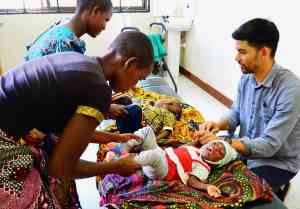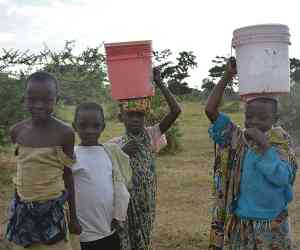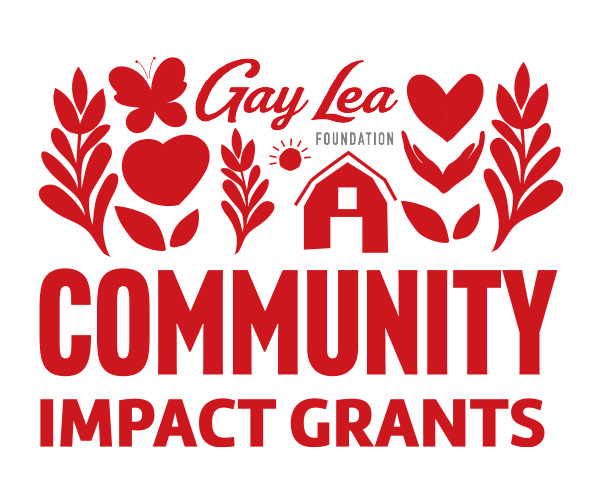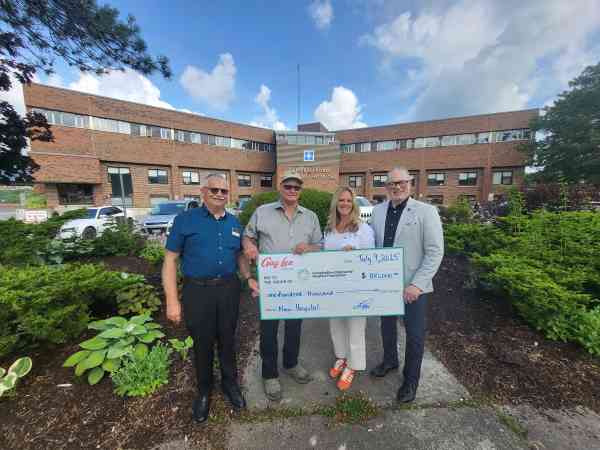Dec 23, 2021
Bringing quality health care to remote communities in East Africa is an enormous challenge. There are approximately three medical doctors per 100,000 people in Tanzania, which is a little over one per cent of the number we have in Canada. As you can imagine, most Tanzanians go their entire lives without seeing a medical doctor.
With the support of the Gay Lea Foundation, Global Peace Network (GPN), a Canadian NGO, has partnered with the local government of Magu District in northern Tanzania to tackle some of the challenges facing health care, such as mentoring and training local health care providers to manage chronic conditions in local rural communities.
Global Peace Network undertakes projects to improve the health and livelihood of impoverished people, mainly through health care and educational support in under-serviced communities in East Africa.
In rural communities, nurses and clinical officers—with two to three years of training after high school— most often provide health care. These dedicated workers have tremendously reduced death and disease due to infectious disorders such as malaria and HIV/AIDS. However, they have almost no training in managing chronic conditions and providing rehabilitation.

A Canadian clinician teaching mothers how to perform rehabilitative exercise with their children who have cerebral palsy.
Chronic musculoskeletal disorders, such as back pain and neck pain, are the leading causes of days lost to disability in Africa due to the hard labour and dangerous conditions under which many people work. Neurological diseases, such as post-stroke disability and, in children, cerebral palsy, are also much more common than in Canada. For almost a decade, Global Peace Network (GPN) has been working with Magu District Hospital, training nurses and clinical officers in neurological and musculoskeletal management and rehabilitation.
Until early 2020, Canadian volunteers, on three-month rotations, worked side-by-side with their Tanzanian partners, providing direct patient care and also mentoring local practitioners. With the advent of COVID, international volunteers were withdrawn, but mentoring has continued at a distance.
GPN has built an online learning management system (LMS) to provide web-based learning modules, which can be accessed from any computer, tablet or smartphone. They also engage in weekly online meetings to problem-solve with Canadian and Tanzanian clinicians. The Tanzanian partners take turns presenting challenging cases, and GPN determines the best way to help the patient.

A typical scene of children carrying heavy loads far beyond the tolerances of their small bodies.
“These internet-based learning opportunities have proven very popular and effective,” says Dr. Brian Budgell, President of Global Peace Network. “Unfortunately, the internet connection in rural Tanzania can be very slow and unreliable. So, we and our Tanzanian partners were thrilled when, in spring of 2021, GPN received a Gay Lea Foundation grant of $12,923 to install a fibre optic connection to Magu District Hospital, where many of our learners are based.”
This permits uninterrupted communications, including video presentations, which greatly enhance our learning sessions. Additionally, the new bandwidth allows our rural hospital to communicate with specialists and medical laboratories at referral hospitals and so improves access to more sophisticated care than would otherwise be available.
“Tanzania is a beautiful and peaceful country with steady progress towards development. Consequently, we can have confidence that the physical infrastructure we develop and the health systems that we support form a secure investment in the future,” says Budgell. “I would like to thank Gay Lea Foundation for its support of this project. Our clinical colleagues and hospital administrators have all praised the benefits of this great new technology.”

Nov 3, 2025
Gay Lea Foods Co-operative Limited (“Gay Lea Foods”) today announced it has received the PRISM Certified designation from Imagine Canada, recognizing the Canadian dairy co-operative’s commitment to...

Oct 21, 2025
As co-operatives recognize Co-op Week and the United Nations’ International Year of Co-operatives, the Gay Lea Foundation is proud to announce the recipients of its fall 2025 charitable grants.

Jun 2, 2025
Spring 2025 grants announced to support health, agriculture, and community well-being projects across Canada and internationally

Feb 12, 2025
The Gay Lea Foundation today announced applications are now open for its Community Impact Grants program, supporting initiatives in education, health, wellness, poverty relief and sustainable agriculture...